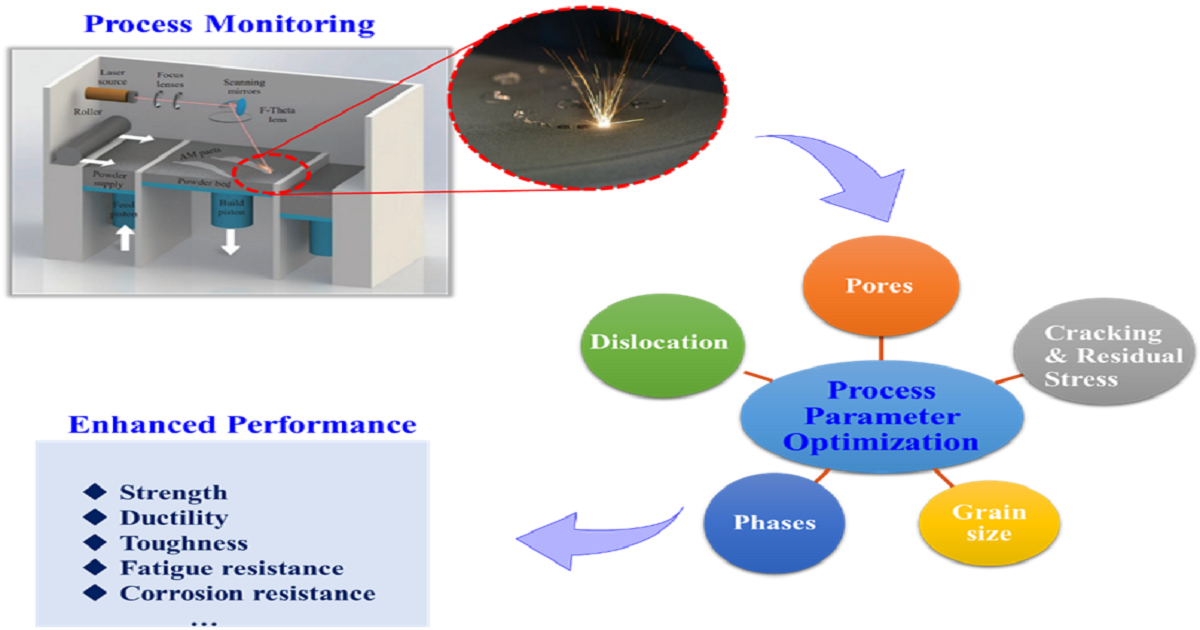- 3.2Impact Factor
- 6.4CiteScore
- 16 daysTime to First Decision
Property Enhancement of Laser Powder Bed Fused Alloy
This special issue belongs to the section “Manufacturing Processes and Systems“.
Special Issue Information
Dear Colleagues,
Laser Powder Bed Fusion (LPBF) is a revolutionary technique for producing intricate metal components. This method offers exceptional design flexibility and efficient material utilization, making it increasingly prevalent in the aerospace, biomedical, and automotive industries.
This Special Issue will comprehensively review recent advancements, unresolved challenges, and emerging opportunities associated with LPBF technology. It will explore the fundamental principles and practical applications of LPBF from multidisciplinary perspectives, including materials science, laser–material interactions, in situ monitoring, and process engineering. Particular emphasis will be placed on experimental investigations, data-driven approaches, and numerical simulations aimed at enhancing the mechanical properties, wear resistance, corrosion resistance, microstructure control, and overall forming quality of manufactured parts. Additionally, contributions on the use of post-processing techniques to refine the surface characteristics or improve the part functionality of additively manufactured components are highly encouraged.
Dr. Cuiling Zhao
Dr. Baixin Dong
Dr. Ran Cui
Guest Editors
Manuscript Submission Information
Manuscripts should be submitted online at www.mdpi.com by registering and logging in to this website. Once you are registered, click here to go to the submission form. Manuscripts can be submitted until the deadline. All submissions that pass pre-check are peer-reviewed. Accepted papers will be published continuously in the journal (as soon as accepted) and will be listed together on the special issue website. Research articles, review articles as well as short communications are invited. For planned papers, a title and short abstract (about 250 words) can be sent to the Editorial Office for assessment.
Submitted manuscripts should not have been published previously, nor be under consideration for publication elsewhere (except conference proceedings papers). All manuscripts are thoroughly refereed through a single-blind peer-review process. A guide for authors and other relevant information for submission of manuscripts is available on the Instructions for Authors page. Materials is an international peer-reviewed open access semimonthly journal published by MDPI.
Please visit the Instructions for Authors page before submitting a manuscript. The Article Processing Charge (APC) for publication in this open access journal is 2600 CHF (Swiss Francs). Submitted papers should be well formatted and use good English. Authors may use MDPI's English editing service prior to publication or during author revisions.
Keywords
- laser powder bed fusion
- field-assisted additive manufacturing
- microstructure control
- process monitoring
- property improvement
- process optimization
- material–laser interaction
- surface finish enhancement
- hybrid manufacturing
- in situ monitoring

Benefits of Publishing in a Special Issue
- Ease of navigation: Grouping papers by topic helps scholars navigate broad scope journals more efficiently.
- Greater discoverability: Special Issues support the reach and impact of scientific research. Articles in Special Issues are more discoverable and cited more frequently.
- Expansion of research network: Special Issues facilitate connections among authors, fostering scientific collaborations.
- External promotion: Articles in Special Issues are often promoted through the journal's social media, increasing their visibility.
- e-Book format: Special Issues with more than 10 articles can be published as dedicated e-books, ensuring wide and rapid dissemination.

